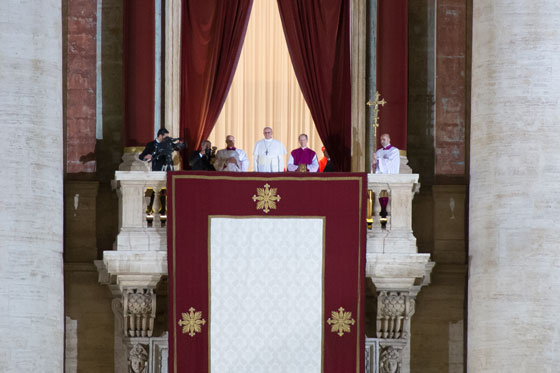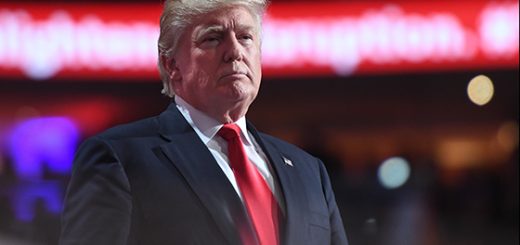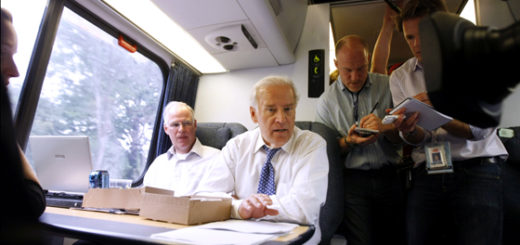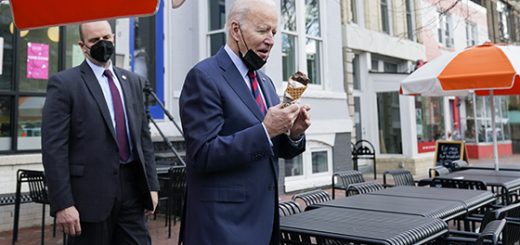Feeding His flock.
Listen to the broadcast of You Tell Me on KTBB AM 600, Friday, December 27, 2013.
Listen now!
or Download for mobile devices!
If during this just-concluding Christmas season you went out with your own money and bought presents to give to people who would have otherwise received nothing, good for you. You committed an act of charity.
If, however, rather than buy presents with your own money you instead entered the home of a neighbor, took all of the presents from under the tree and then passed them out to the poor, shame on you. You’re a thief. That the items that you took wound up in the hands of the needy doesn’t make it any less so.
And thus we illustrate the key difference between charity and government welfare. Charity is voluntary.
Yet charity and welfare are similar in that they draw their water from the same well.
Our welfare system got its start in 1935 with the passage of legislation creating Aid to Families with Dependent Children. It was designed primarily to offer assistance to women who bore sole responsibility for raising children due to the absence of a father in the home. In its infancy, the program primarily helped widows.
Early welfare was well-intentioned and arguably necessary. But our welfare system has morphed into something that is both unaffordable and in many ways antithetical to the goal of helping the poor.
Nearly 80 years after its creation, our welfare system has become incrementally less about meeting exigent need and incrementally more about so-called “social justice.” The taking of wealth from the “rich” in order to give it to the “poor” has become an end unto itself.
There can be no doubt that a good and decent society has a duty to alleviate the suffering inherent to poverty. The very scriptures call for us to feed the poor.
But neither the scriptures nor proponents of welfare ever go on to answer the question, ‘With what?’ If we are to provide food to those who cannot obtain food for themselves, someone must first produce the food. If government is to provide cash payments to poor people, it must first get the cash. Since the government has no money of its own, it must levy taxes upon those who do something taxable, i.e. earn money through work or investment.
Charity is not an atonement for having created wealth. The creation of wealth is a precondition for charity. Similarly, welfare shouldn’t be for the purpose of extracting “justice” from someone for getting wealthy. Someone getting wealthy is the precondition to offering welfare.
Implicit in the belief of liberals that taking wealth from Sam is morally justified because it improves the lot of Tom is the recognition that Sam has the wealth to take in the first place. They never consider the questions of where did Sam get the wealth and what will become of Tom when it has, at last, all been taken away? They never consider the implications for Tom when Sam says, “I’m not going to produce anymore if they’re just going to take it from me.”
Recently, in an apostolic statement Pope Francis said, in effect, that capitalism is OK with him on the condition that we feed the poor. I say, with all deference to the Holy Father, that we can feed the poor only on the condition that we have capitalism.
If you would feed the Lord’s flock, you must first plant the fields. But planting fields entails risk and no one takes risk absent the possibility of reward. The greater the risk, the greater must be the potential for reward. When that potential is realized, it’s called wealth. From the creation of wealth, and only from the creation of wealth, are charity and welfare even possible.
Capitalism – which is to say the pursuit of wealth — has lifted more humans out of poverty than any other economic system ever tried.
Our welfare system cannot help the needy if its first mission is to cut the wealthy down to size. No one in America is poor because someone else has become lawfully rich. But if we ever reach the place where no one is rich, everyone will be poor.









It was disappointing to hear Pope Francis’ comments about Capitalism being a major cause of poverty and injustice in the world. The only hope for the impoverished countries of the 3rd world to enter into the 21st Century is through the free market system of capitalism, to which they have been denied by their “rulers” and “tribal leaders” for centuries. How else can you explain the disparity of the quality of life between these undeveloped countries, (with a wealth of natural resources), and those of the western civilizations? We need to stop demonizing those who have the ingenuity and work ethic to develop products and services which help ALL people, instead of trying to penalize the success they enjoy as a result of their efforts. The so-called poor in our society possess cell phones, big screen TV, air conditioning, etc.; they are only poor in the eyes of those who are jealous of the successful and want to redistribute their assets. It is especially disappointing to hear the Pope being critical of the system that has created the opulence of the Vatican and all the trappings of a king, which he now enjoys.
I also was disappointed to hear the Pope criticizing capitalism & subscribing it to the cause of poverty.
It shows that the Pope does not understand economics principles. Our “poor” have such high living standards compared to any poor ever in history. This is due to “Capitalism.( Econ 101).
It also says in the Bible that “Those who do not work shall not eat”,” the reward for those who are righteous is wealth…honor…plenty…barns running over with goods…”‘etc.”
The parable of the “talents…being careful /prudent/industrial with goods…is rewarded….”
Even the precepts of Benedictine, Cistercians, Jesuits do not lean against Capitalism, but rather asks for sharing. It also stands to reason that if you give all …even a million ; you end up helping no one & can not even help yourself.
That is not helping but hurting & the misuse of God’s gift: our brain.
All things belong to God & are His ; therefore we only have the loan of these things until our death.
If we are not prudent with these things….including our bodies/goods/relationships/ etc.,we will have to answer for this.
I think this Pope, being from South America sees everything very differently than the former Popes.
Please, let’s stop calling the “redistribution of wealth” by the forces of Big Government (the Liberal, Socialist, Marxist, Fascist, Communist, or Collectivist Pagans) that pretend to want to “help the poor,” as being motivated by “good intentions.” Nothing could be further from the truth.
These people are completely consumed with the arrogance and wickedness of having ultimate power over their fellow man using the “fig leaf” of “fairness” while they ignore all of human history and the natural laws that govern the rewards that can benefit mankind. The pursuit of self-preservation and prosperity by the labor of one’s own effort and willingness to provide goods or services to his fellow man in exchange for compensation is the only way for an individual or a nation to succeed. The value of your work is only worth what the market is willing to pay for it. End of story.
Any other method to gain wealth is born of corruption and there is no better place for corruption to hide than in the sanctimonious halls of a government infested with these Collectivist Pagans or in educational and religious institutions that support this form of immorality. Such is the case today.
I recently heard a recording of President Kennedy’s inaugural address in which he proclaimed the fundamentals of economics that bring about individual prosperity and that reject the allure of Collectivism. Today’s Democrat Party, full of far-left fanatics, bears no resemblance to the Democrat Party of JFK.
The idea that prosperity can be “justly” achieved on the basis of “equality” by redistributing the wealth of Sam to benefit Tom, is essentially giving Tom part of the property owned and generated by Sam. This is simply using “legalized theft” to make the transfer. To that extent, Sam has become a slave of Tom. Sam’s work has been forced to benefit Tom without Sam being compensated.
Put simply, the far-Left Pagans that practice this form of prosperity reassignment while claiming the power to do so, are the new slave-masters of the 21st century. They do not deserve any credibility in the field of economics and should be constantly exposed as the charlatans that they are. The laws of economics that bring about maximum prosperity are based on concepts of morality that the Collectivists reject in their entirety.
The recipients of stolen wealth by “redistribution” are as corrupt as the Collectivist slave-masters that they pay homage to and should be ashamed of the wickedness that they are supporting. It is no wonder that many believe that this country is on the precipice of total economic collapse if 51% of voters become dependents of the new slave-masters.
If that happens, Obama’s Marxist utopia will be at hand and representative government based on elections, free of corruption, will be over. The Emperor Obama will have won his “war on capitalism.” Make no mistake; he and his supporters believe that this is what he was elected to do.
http://callthepatriot.wordpress.com/2013/12/09/pope-francis-as-an-open-supporter-of-tyranny/
A discussion concerning free-market economics and Pope Francis.